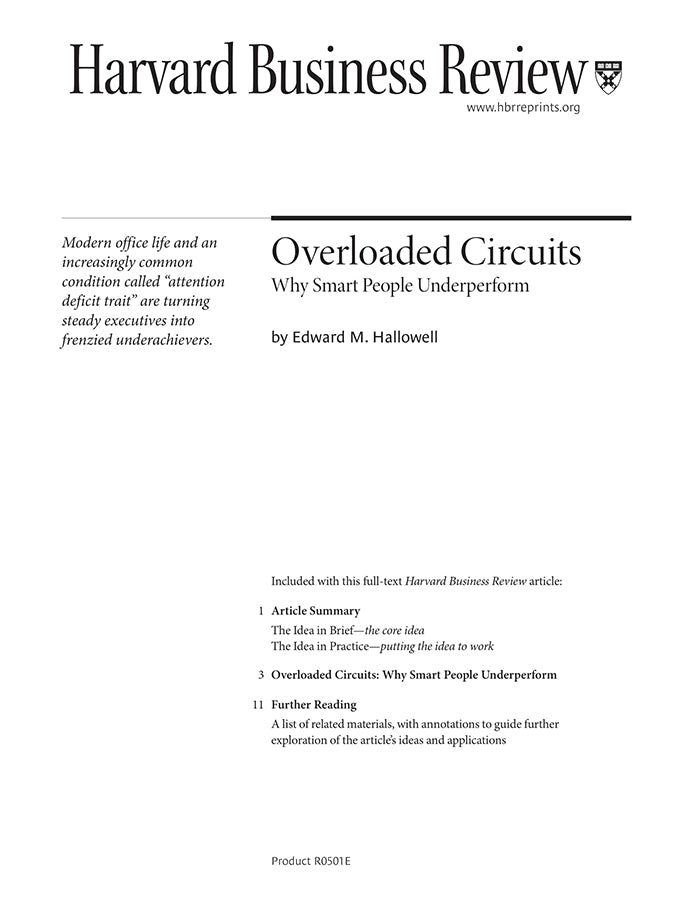Overloaded Circuits: Why Smart People Underperform
受取状況を読み込めませんでした
This article includes a one-page preview that quickly summarizes the key ideas and provides an overview of how the concepts work in practice along with suggestions for further reading. Frenzied executives who fidget through meetings, lose track of their appointments, and jab at the "door close" button on the elevator aren't crazy--just crazed. They suffer from a newly recognized neurological phenomenon that the author, a psychiatrist, calls attention deficit trait, or ADT. It isn't an illness; it's purely a response to the hyperkinetic environment in which we live. But it has become epidemic in today's organizations. When a manager is desperately trying to deal with more input than he possibly can, the brain and body get locked into a reverberating circuit while the brain's frontal lobes lose their sophistication, as if vinegar were added to wine. The result is black-and-white thinking; perspective and shades of gray disappear. People with ADT have difficulty staying organized, setting priorities, and managing time, and they feel a constant low level of panic and guilt. It is possible to control ADT by engineering one's environment and one's emotional and physical health. Make time every few hours for a "human moment"--a face-to-face exchange with a person you like. Get enough sleep, switch to a good diet, and get adequate exercise. Break down large tasks into smaller ones, and keep a section of your work space clear. Try keeping a portion of your day free of appointments and e-mail. The author recommends that companies invest in amenities that contribute to a positive atmosphere.
【書誌情報】
ページ数:16ページ
サイズ:A4
商品番号:HBSP-R0501E
発行日:2005/1/1
登録日:2012/3/28


